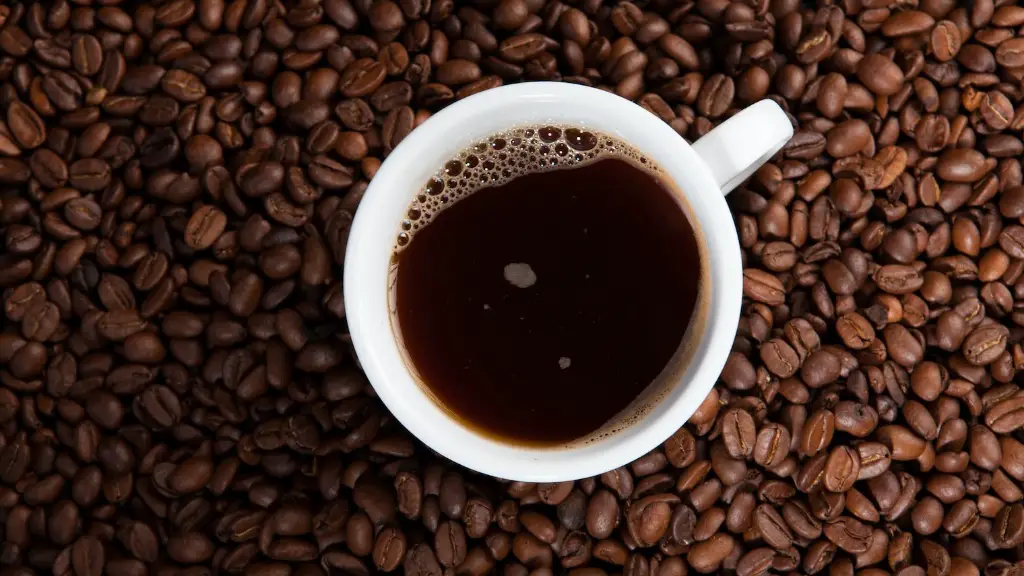Coffee is consumed daily by millions of people all over the world, with many believing it to be a stimulating beverage that boosts our alertness. But what happens if we drink coffee at night? Is it harmful to our health, or can it even be beneficial?
Studies conducted in 2015 and 2016 have determined that drinking coffee in the evening has a different effect on the body compared to consuming coffee during the day. It has been concluded that coffee might actually help us to stay more alert and perform better in tests for tasks that require higher brain processing in the evening, as reported by the journal of Sleep.
Drinking coffee late in the evening has been linked to sleeping difficulties in some people. According to an independent study undertaken by the University of Michigan, caffeine quickly passes through the bloodstream and reaches its peak concentration in the body after approximately 45 minutes. Therefore, drinking coffee an hour before bedtime may interfere with the individual’s ability to get enough sleep. Since this finding can vary widely among individuals, it is important to note that the effects of drinking coffee at night can be very different depending on the individual.
Not only is it important to consider the immediate effects that coffee consumption has on our bodies, but it is also crucial to look at the long-term implications. For instance, research published in a 2020 issue of the Annual Review of Nutrition shows that coffee consumption could contribute to the prevention of chronic illnesses. According to this research, coffee consumption has been linked to lower risks for diabetes, heart disease and stroke. More studies are needed to understand coffee’s potential effects on other conditions.
Although there are numerous potential benefits associated with drinking coffee at night, it is important to bear in mind that there are some potential negative effects too. For example, those who drink more than 3 cups per day of coffee are presenting higher levels of anxiety and stress, and increased levels of caffeine can also be linked to insomnia, restlessness and irritability.
Overall, the evidence suggests that drinking moderate amounts of coffee in the evening is most likely safe, but it is important to keep in mind the potential negative consequences. It is important to speak to your doctor regarding individual concerns you may have regarding the effects of coffee consumption at night.
How Does Caffeine Affect Our Sleep Pattern?
Caffeine increases the neurotransmitter acetylcholine, which is responsible for alertness, by blocking adenosine receptors in the brain. This blocking of adenosine leads to an increase in alertness and a reduction in feelings of sleepiness due to the effects of increased alertness. Regularly consuming caffeine can lead to the body becoming accustomed to it, meaning people need higher amounts as time goes on to achieve the same level of alertness than when the person first started to take the coffee.
Caffeine’s effects on sleep patterns and the body’s circadian rhythm is complex, as it can cause reductions in sleep duration and quality, as well as a delay in the time when a person falls asleep. One study has also suggested that individuals who regularly consume caffeine, whether at night or during the day, might see a decrease in their chances of experiencing REM sleep.
REM sleep, or rapid eye movement sleep, is a crucial stage of sleep in which the brain’s activity is higher than in other stages. During this stage of sleep, the eyes will move rapidly and the person will typically experience dreaming. Poor REM sleep may be associated with an increase in fatigue and a decrease in the overall quality of sleep.
It should also be noted that genetics could be a factor in how caffeine affects individuals. As we all have different levels of tolerance and sensitivity to caffeine, different people may be affected differently by consuming it at night, even in moderate doses.
What other Beverages can Substitute for Caffeine?
For individuals looking to wean themselves off of caffeine or to be proactive in avoiding the potential long-term effects of consuming high amounts of coffee at night, there are several alternatives that may be used. These alternatives can provide restorative and energizing benefits without the use of caffeine.
Green tea is one option. It contains catechins, a type of antioxidant, that can provide your body with many health benefits. In addition, green tea is also known for providing a calming and alert effect. As opposed to coffee, green tea contains only modest amounts of caffeine, making it a beneficial alternative for individuals wanting to reduce their caffeine intake. Green tea also contains the amino acid L-theanine which can help promote alertness and relaxation at the same time.
Kombucha is another alternative that can provide individuals with a health boost, as it is rich in B vitamins, probiotics and glucaric acids. This fermented tea can provide restorative and energizing effects, while being pleasantly refreshing at the same time.
Chocolate, whether dark or milk, can also be an alternative. For example, dark chocolate contains flavonoids, Polyphenols and magnesium which can help support the body’s nervous system, while milk chocolate is rich in calcium and has fewer stimulant effects than dark chocolate. In either case, the chocolate can also offer a slightly sweet, comforting taste, whilst providing the body with a healthy boost.
How Should We Measure Coffee Intake?
Caffeine occurs naturally, but not just in coffee beans. Tea, chocolate, and energy drinks can also contain high amounts of caffeine, and there are also caffeine-containing supplements that can be taken. While the effects of caffeine from coffee and dietary sources can be different, it is important to consider these and other sources of caffeine when measuring caffeine intake.
The recommended amount of caffeine for healthy adults is 300 mg/day, which is roughly equivalent to 3 cups of coffee. That is why it is important to be aware of and measure your caffeine intake. Drinking more than 300 mg a day can lead to unpleasant side effects, such as restlessness, difficulty sleeping, and headaches.
An individual’s activity levels, stress, genetics and number of cups of coffee taken per day are all important factors to consider when looking at caffeine intake. As such, it is important to measure one’s own caffeine intake in order to ensure that it is not excessive and using tools or apps can help individuals monitor their caffeine intake.
In addition, if an individual wants to reduce their caffeine intake, it is as important replace the cups of coffee with other beverages, such as green tea, kombucha, or chocolate, which can provide beneficial effects for the body and mind, whilst avoiding the potential negative effects of caffeine.
Benefits of Reduced Caffeine Intake?
The health benefits associated with reduced caffeine intake are numerous. Studies have shown that reducing caffeine from four cups a day to two or one a day can improve liver function and reduce anxiety and risk of cardiovascular disease. It can also help to improve sleep quality, as consuming moderate amounts of caffeine at later times in the day has been linked to decreased chance of experiencing REM sleep, whereas reduced caffeine intake can help lead to improved REM sleep.
Additionally, reduced caffeine intake can help an individual’s metabolism, as it can help improve energy levels and reduce any chances of feeling fatigued throughout the day. Lower levels of fatigue and increased energy can lead to improved performance throughout the day, as well as potentially also having positive effects on diet.
Finally, reducing caffeine intake can also be beneficial for individuals suffering from headaches or migraines. Caffeine can be both positively and negatively associated with headaches and migraines, meaning reducing caffeine intake can potentially reduce the frequency or intensity of those symptoms.
Potential Side Effects of Reduced Caffeine Intake
Whilst reduced intake of caffeine can provide many potential benefits, it is important to be aware that for some individuals, switching to a lower coffee consumption can have some potential drawbacks. For one, individuals may suffer from a headache due to withdrawals from coffee. This is due to an individual’s body needing time to adjust to not having the normal levels of caffeine.
Secondly, individuals switching to lower levels of coffee consumption may experience fatigue or lethargy. This can potentially occur due to the reduced energy provided through caffeine, meaning individuals will have to find alternative ways to make up for the energy that was provided by coffee. Additionally, if an individual was consuming coffee late in the evening, the reduction of coffee consumption can lead to potential increases in sleep latency, meaning the individual will take more time to fall asleep.
Finally, for those who are accustomed to a higher level of coffee consumption, it can be difficult to make the switch to lower levels. This is due to coffee contributing to our daily routines and giving us a sense of comfort and calm.
Ways to Make the Switch to Lower Caffeine Intake Easier
Making the switch to drink lower levels of coffee or to substitute it with other beverages can be difficult. However, there are certain measures one can take to make this transition easier. For one, switching to decaffeinated coffee or teas can help reduce the amount of caffeine consumed, while still providing the same taste and comfort that coffee provides.
Additionally, taking caffeine at different times of the day can help an individual adapt to lower levels of caffeine consumption. Consuming caffeine earlier in the day can help individuals regulate their body’s rhythm, as opposed to consuming coffee late at night when the body has already started to relax and prepare for sleep.
Finally, mindful drinking can be beneficial for individuals wanting to reduce their caffeine intake. Mindful drinking is the practice of being aware of one’s own body and focusing on the present and one’s own needs, by taking the time to slow down and savor each sip of the beverage. This practice can help individuals to be more aware of their own actions and to make better-informed decisions around their drinking habits.





